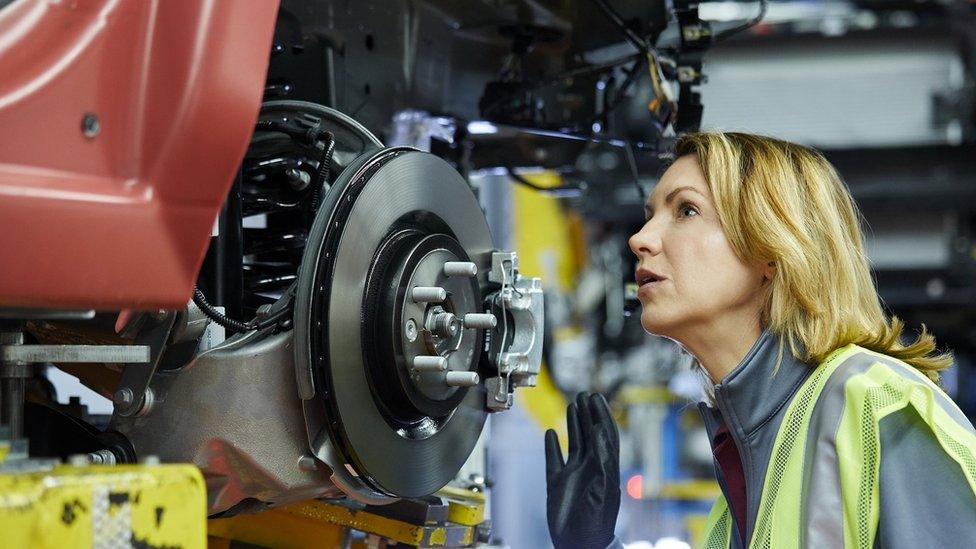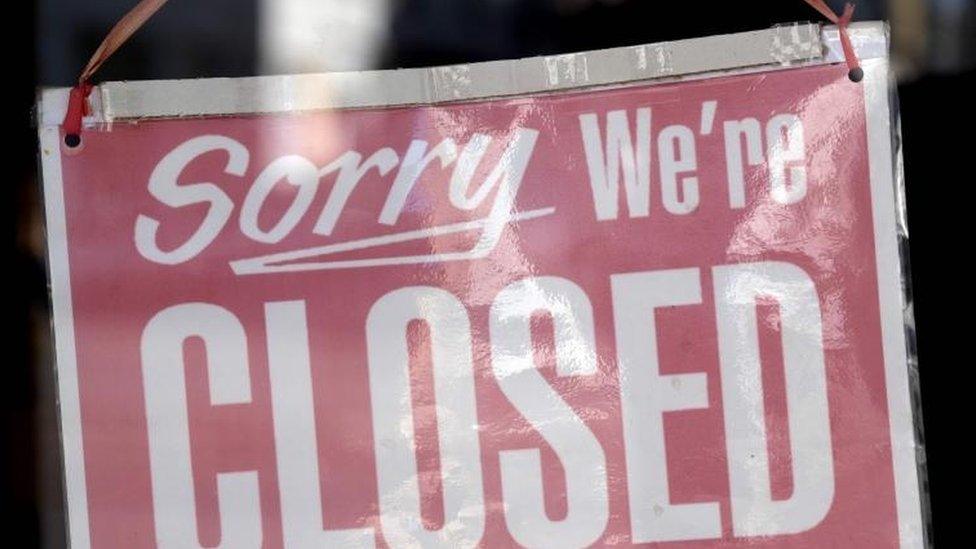Coronavirus: UK urged to pay for workers' wages
- Published

The government has been urged to step in immediately to pay firm's wage bills to prevent mass unemployment.
MPs across all parties are warning that small and medium sized businesses are facing a "catastrophic" loss of revenue because of anti-virus measures.
The chancellor's offer of government backed emergency loans was not enough to stop firms shedding jobs.
They are calling for the government to throw the tax system into reverse gear to pay wages many firms cannot afford.
The calls came from former business secretary Greg Clark and also from the all-party Parliamentary group on Small Business Banking, a cross party group.
Kevin Hollinrake, chair of the All-Party group, said: "Businesses are in crisis and this crisis threatens to be worse than the global financial crisis, possibly the worst recession in history.
"Loans won't work: the loan just kicks the can down the road and makes the firms bear the huge cost of stopping the virus; the loans have to be paid back later. Who would want to invest in a business: what happens if another virus strikes?
"Business people know about business cycles and they expect to see recessions where their revenue might drop by 10 or even 20 per cent. But here it's 90 or 100 per cent."
The cost of paying small businesses' wage bills across the board would run into hundreds billions of pounds, boosting the national debt. But MPs say an economic crisis "the like of which has not been seen in 100 years" demands a response that matches its scale.
In an emergency question on the floor of the House of Commons, Mr Clark warned:
"With revenue collapsing and no knowledge of when normal trading can resume they see no choice but to lay off workers now. The loan scheme that the chancellor announced on Tuesday is not enough to prevent that.
"These businesses have no idea when they will be able to pay back the debt they will incur. It provides no reason to keep staff employed: in fact - the reverse - because the smaller the wage bill, the less would have to be borrowed."

"On Tuesday the chancellor promised employment support but as each day goes by, businesses are making decisions that will be irreversible.
"If the government does not act immediately, large numbers of people will be unemployed, registering them will put huge pressure on the welfare system, vital skills will be lost and good businesses will cease trading - who themselves will be the customers and suppliers of other businesses.
Mr Clark said there was a solution which was straightforward and could be done immediately. All employers have an account with HMRC to pay tax on behalf of employees to the government through Pay As You Earn (PAYE).
"Instead of firms paying PAYE to the government, that flow should now be reversed, with the nation paying the wages of people for the next few weeks if, and only if, they continue to employ their staff.
"At a stroke this would save people's jobs, save businesses and put an immediate end to the risk of contagion and help save the economy.
"The Chancellor said he would do whatever it takes and do so urgently. He now needs to make good on that, without delay - now."